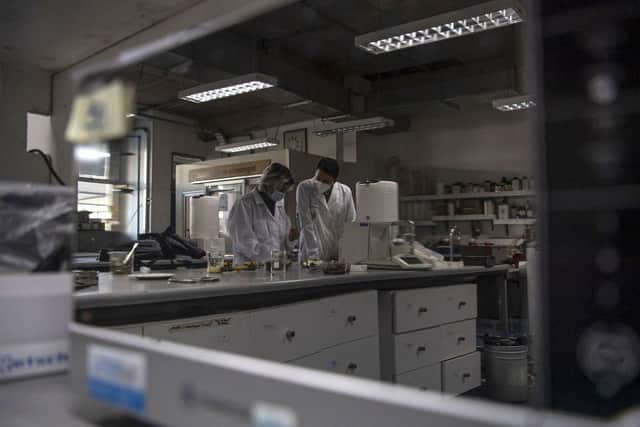Migration UK: Scottish universities could face skilled labour shortage due to skilled worker salary threshold hike
Scottish universities could struggle to attract global talent in positions such as scientific research, Universities Scotland has warned, due to the UK Government’s new plans to increase the skilled worker salary threshold to £38,700.
Around 62 per cent of post-doctoral positions at British universities are held by non-UK nationals, according to the Royal Society. However, a large number of post-doc roles are paid at just below the threshold set to be introduced by the UK Government.
Advertisement
Hide AdAdvertisement
Hide AdOther roles which could be impacted by the increase, the body warned, include jobs in disciplines including civil and mechanical engineers and IT specialists.


Under sweeping measures to reduce immigration, home secretary James Cleverly on Monday unveiled plans to hike the skilled worker earnings threshold by a third to £38,700, in line with the median full-time wage. Anyone earning less than this figure would not be granted a visa to work in the UK, regardless of the job.
Alastair Sim, director of Universities Scotland, welcomed the Government’s commitment to the “graduate route”, which allows international students who have been awarded their degree to stay in the UK and work, or look for work, at any skill level for two years, or three years for doctoral students. But he warned certain roles at universities could be difficult to fill if visas were not available for workers from overseas.
“Universities will be concerned at the potential impact of changes to skilled salary thresholds and the shortage occupation list,” he said. “This could impact universities’ ability to attract global talent, in disciplines ranging from civil and mechanical engineers to lab technicians and IT specialists.”
Mr Sim added: “Additionally, Universities in Scotland rely on fees from international students to subsidise the learning and teaching for students attending university. This income is also used to support the costs of research and innovation that takes place at Scottish universities.


“We will work with the Government to consider the impact of these potential changes.”
Mr Sim continued: “We are pleased the Government remains committed to maintaining the Graduate Route. No one wants abuse of the system, so we will work with government to ensure there is no scope for this. However, it is important that we now put to bed the suggestion that this visa will be scrapped, which will go a long way to reassuring prospective international students that the UK remains an attractive destination. The Graduate Route is an essential part of the UK’s offer to prospective students. Many of our competitors have something more attractive.
"International students make a net economic contribution to Scotland of around £4.75 billion every year and this benefits the whole of the UK. There are towns and cities across the country who can ill afford to lose this economic boost, and it is good to see that this has been recognised.”
Advertisement
Hide AdAdvertisement
Hide AdThe Home Office refused to comment on the specific issue and instead pointed to the statement issued on Monday. That statement said the increase would encourage businesses to “look to British talent first and invest in their workforce, helping us to deter employers from over-relying on migration, whilst bringing salaries in line with the average full-time salary for these types of jobs”.
Comments
Want to join the conversation? Please or to comment on this article.
